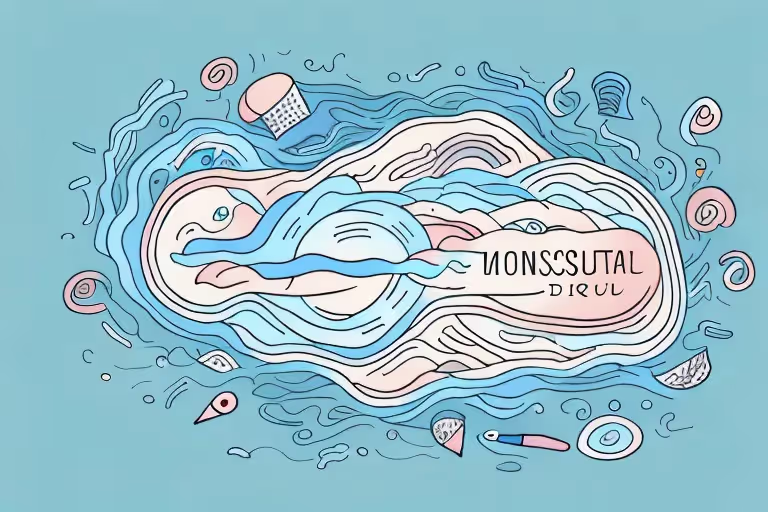Do you find yourself constantly tossing and turning at night, unable to fall into a deep and restful slumber? Or do you lie awake for hours, caught up in a restless cycle of thoughts and worries that prevent you from finding any kind of peace? If you can relate to these experiences, you may be one of the many individuals who suffer from psychophysiological insomnia. In this article, we will dive deep into the causes, symptoms, and treatment options for this often-misunderstood sleep disorder.
What is Psychophysiological Insomnia?
Before we delve into the specifics of psychophysiological insomnia, let's start by defining what it actually is. Psychophysiological insomnia, also known as primary insomnia, is a sleep disorder characterized by a persistent difficulty in falling asleep or staying asleep, with no underlying medical or psychiatric condition that can explain these disturbances. The term "psychophysiological" refers to the mind-body connection that plays a significant role in this disorder's development.
Defining Psychophysiological Insomnia
Psychophysiological insomnia is a type of insomnia that is primarily caused by psychological and physiological factors. It is often initiated by a triggering event, such as stress, trauma, or a significant life change. This event can disrupt the delicate balance between the mind and body, leading to chronic sleep difficulties. Over time, this sleeplessness can become a learned response, leading to a cycle of anxiety and further sleep disruption.
When it comes to psychophysiological insomnia, it's important to understand that it is not simply a matter of poor sleep habits or an inability to relax. While these factors can contribute to sleep difficulties, they are not the sole cause of this disorder. Psychophysiological insomnia has deeper roots in psychological and physiological factors, making it a complex and multifaceted condition that requires a comprehensive approach to treatment.
One of the key aspects of psychophysiological insomnia is the mind-body connection. The mind and body are intricately linked, and disruptions in one can have a significant impact on the other. For example, if someone experiences a traumatic event, their mind may become filled with intrusive thoughts and worries, making it difficult to relax and fall asleep. On the other hand, chronic sleep deprivation can lead to increased anxiety and stress, further exacerbating the sleep difficulties. This vicious cycle can be challenging to break without proper intervention.
Another important point to consider is the role of cognitive processes in psychophysiological insomnia. Individuals with this disorder often have racing thoughts and excessive worry about their sleep. They may constantly monitor their sleep environment, obsess over sleep hygiene, and engage in unhelpful behaviors such as spending excessive time in bed or napping during the day. These cognitive processes can contribute to heightened arousal and make it even more difficult to fall asleep.
It's also worth mentioning that psychophysiological insomnia can have a significant impact on an individual's daily functioning and overall quality of life. The chronic sleeplessness can lead to daytime fatigue, difficulty concentrating, irritability, and mood disturbances. Relationships, work performance, and overall well-being can all be negatively affected by this sleep disorder.
Given the complex nature of psychophysiological insomnia, treatment typically involves a multidimensional approach. This may include cognitive-behavioral therapy (CBT), which aims to identify and modify unhelpful thoughts and behaviors related to sleep. Relaxation techniques, sleep hygiene education, and stress management strategies may also be incorporated into the treatment plan. In some cases, medication may be prescribed to help manage the sleep difficulties.
In conclusion, psychophysiological insomnia is a sleep disorder that goes beyond simple sleep habits or relaxation techniques. It is a complex condition that involves the mind-body connection, cognitive processes, and various psychological and physiological factors. Understanding the intricacies of this disorder is crucial in developing effective treatment strategies and improving the quality of life for individuals struggling with psychophysiological insomnia.
The Causes of Psychophysiological Insomnia
Understanding the causes of psychophysiological insomnia is key to unlocking the path toward restful sleep. In many cases, this type of insomnia is the result of a perfect storm of psychological, physiological, and environmental factors that work together to disrupt the sleep-wake cycle.
Psychological Factors
The mind plays a significant role in the development and perpetuation of psychophysiological insomnia. Stress, anxiety, depression, and other psychological conditions can create a vicious cycle of sleeplessness. Racing thoughts, worry, and an overactive mind can make it nearly impossible to relax and fall asleep. Additionally, individuals with psychophysiological insomnia often develop conditioned arousal, where the bed and bedroom become associated with wakefulness instead of sleep.
Physiological Factors
Physical factors can also contribute to the development of psychophysiological insomnia. Chronic pain, hormonal imbalances, and sleep disorders such as sleep apnea can disrupt the normal sleep architecture, making it difficult to achieve deep and restorative sleep. Furthermore, certain medications or substances, such as caffeine and nicotine, can interfere with the body's ability to relax and fall asleep.
Environmental Factors
Our surroundings can have a profound impact on our sleep quality. Noise, temperature, and light can all disrupt the sleep-wake cycle and contribute to psychophysiological insomnia. A noisy sleeping environment, for example, can make it challenging to fall asleep and stay asleep throughout the night. Similarly, excessive light exposure, especially from electronic devices, can interfere with the natural release of melatonin, a hormone that helps regulate sleep.
Recognizing the Symptoms of Psychophysiological Insomnia
Now that we have explored the causes of psychophysiological insomnia, let's discuss the symptoms that can indicate its presence. Recognizing these symptoms is essential for early intervention and optimal treatment outcomes.
Physical Symptoms
Physically, psychophysiological insomnia can manifest in various ways. Individuals may experience fatigue, daytime sleepiness, or a general lack of energy. They may also notice an increase in muscle tension or headaches, which are common physical manifestations of sleep deprivation. Additionally, gastrointestinal disturbances, such as stomach pain or indigestion, can occur due to the body's heightened state of arousal.
Psychological Symptoms
The toll of sleeplessness extends beyond the physical realm, affecting mental and emotional well-being. Individuals with psychophysiological insomnia often experience heightened irritability, mood swings, and difficulty concentrating. They may also become more prone to anxiety and depression, as the vicious cycle of sleeplessness and daytime distress perpetuates.
Impact on Daily Life
The consequences of psychophysiological insomnia can permeate every aspect of an individual's life. Sleep deprivation can impair cognitive functioning, reducing productivity and affecting work or academic performance. It can strain relationships and hinder social interactions, as the exhaustion and irritability take their toll. Furthermore, engaging in activities that were once enjoyed becomes increasingly challenging, as fatigue and lack of motivation set in.
Treatment Options for Psychophysiological Insomnia
The good news is that psychophysiological insomnia is treatable, and with the right interventions, restful sleep can be restored. Let's explore some of the treatment options available for this sleep disorder.
Behavioral Therapies
Behavioral therapies, such as cognitive-behavioral therapy for insomnia (CBT-I), are considered the gold standard for treating psychophysiological insomnia. These therapies aim to address the psychological and behavioral factors that contribute to sleep difficulties. Through techniques such as stimulus control, sleep restriction, and relaxation training, individuals can reestablish healthy sleep habits and develop coping mechanisms to manage racing thoughts and anxiety at bedtime.
Medication Treatments
In some cases, medication may be prescribed to alleviate the symptoms of psychophysiological insomnia. However, it is important to note that medication should not be seen as a long-term solution but rather a short-term measure to help individuals get the rest they need. Medications such as benzodiazepines or non-benzodiazepine hypnotics can be used under the supervision of a healthcare professional, but their use should be closely monitored to prevent dependence and minimize potential side effects.
Lifestyle Changes
Implementing healthy lifestyle changes can also play a significant role in managing psychophysiological insomnia. Regular exercise, proper sleep hygiene, and stress-management techniques, such as mindfulness or relaxation exercises, can contribute to improved sleep quality. Avoiding stimulating substances, such as caffeine and alcohol, close to bedtime can also promote deeper and more restorative sleep.
Overall, a comprehensive and individualized approach is necessary to treat psychophysiological insomnia effectively. Working with a healthcare professional or sleep specialist can help identify the underlying triggers, develop a tailored treatment plan, and provide ongoing support to optimize sleep quality and overall well-being.
As we wrap up our exploration of psychophysiological insomnia, it's worth mentioning the importance of self-care and the benefits of utilizing tools and resources that can help facilitate a good night's sleep. The Aura Health App, for example, provides a range of guided meditations, sleep soundscapes, and relaxation techniques designed to ease the mind and promote relaxation. By incorporating such resources into your daily routine, you can take proactive steps toward overcoming psychophysiological insomnia and unlocking a more peaceful and restful sleep.
Aura is Your All In One App for Meditation, Mindfulness Wellbeing
Find peace every day with one app for your whole well-being. There is no one-size-fits-all solution to mental well-being. Aura is the first all-in-one wellness app that learns how to best help you. Discover an endless library of expert-created tracks for your well-being, all taught by the world’s best coaches, therapists, and storytellers. With Aura's personalized recommendations, you can find peace every morning, day and night.



.webp)






.avif)

%20(1).avif)


.avif)
.avif)
.webp)


.avif)


















































































































.avif)

















.svg)









